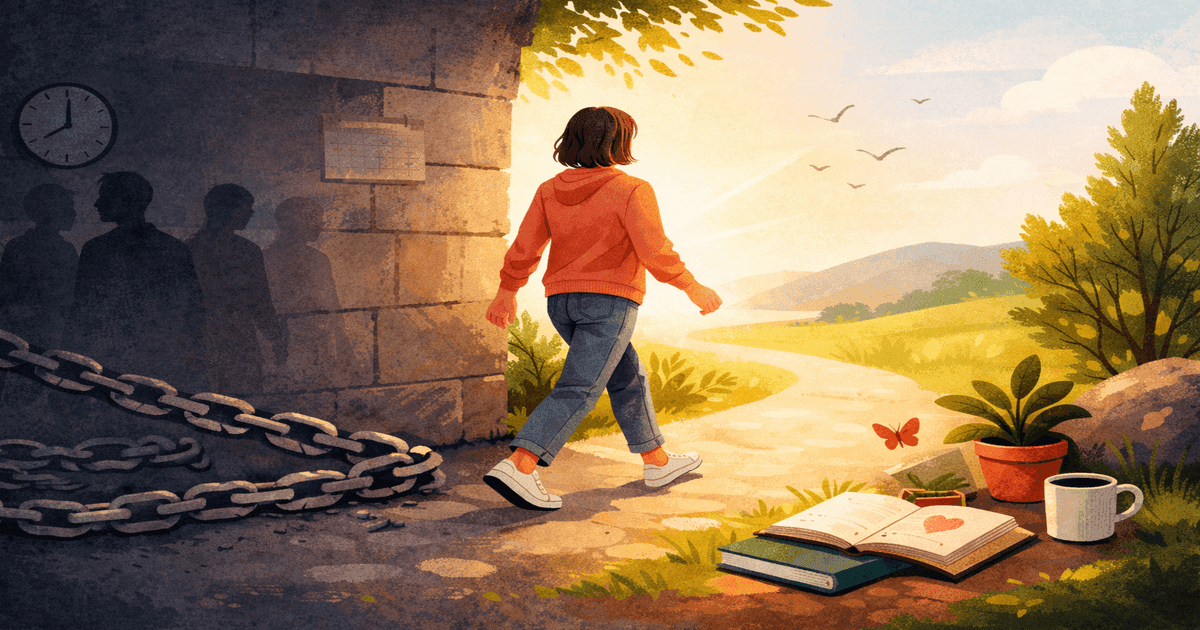Have you ever noticed how a familiar tune or childhood scent can shift your mood? That gentle pull toward a past moment is nostalgia, and it is far more powerful than you might think. Whether it's warming or wistful, nostalgia is a bittersweet companion that carries real impact on our mental state. Let’s discuss how and why that happens and what it means for you.
What Is Nostalgia?
Nostalgia is more than just wistful longing. Its name comes from Greek roots meaning “pain of homecoming,” a term originally coined to describe homesick soldiers. Today, researchers define it as a deeply personal emotional experience triggered by familiar sensory touchpoints like songs, smells or visuals
Nostalgia can come in different ways. Sometimes it’s anchored in personal memories like family gatherings, and other times it’s collective, associated with a certain era or cultural moment.
Nostalgia is even used in therapy. Reminiscence Therapy, especially for older adults, uses photos, music, scents or shared storytelling to lift mood and reduce depression.
What Nostalgia Does in the Brain
You might think drifting back into memories doesn’t do much, but neuroscience says otherwise. Imaging studies reveal that nostalgic stimuli activate the hippocampus (our memory hub) and reward pathways like the striatum
Smells can be particularly powerful nostalgic triggers. Research shows that sniffing an odor tied to personal memory lights up areas involved in self-reflection and reward, potentially calming inflammation too.
Music also brings a unique effect as nostalgic songs spark activity in networks tied to memory, emotion, and self-awareness, even more so in older adults.
Positive Effects of Nostalgia on Mental Health
Decades of research show that nostalgia can do more than bring a smile, it has measurable effects:
- Nostalgia boosts mood and optimism by reminding us of happy moments and inspiring confidence that good times can come again.
- It reduces stress and anxiety by acting as an emotional anchor, helping us feel calmer and more stable.
- Nostalgia strengthens social connectedness and personal identity through memories of friends, family, and meaningful communities.
- It builds psychological resilience, helping people cope with challenges and maintain hope during difficult times.
- Nostalgia encourages meaning and purpose by reminding us of our values, goals, and the people who matter most.
When Nostalgia Weighs You Down
Nostalgia is not always uplifting because the complexity of the emotion comes from its bittersweet quality, mixing joy with longing.
- Nostalgia can deepen sadness when memories arise unexpectedly, leading to rumination and emotional unrest.
- It can become a form of escapism, making people avoid present challenges and feel less satisfied with current life.
- Nostalgia is more helpful for people with secure relationships and can increase isolation for those with insecure attachment styles.
If nostalgia ever brings persistent sadness or makes daily life difficult, speaking with a mental health professional or therapist can provide guidance and support.
How to Use Nostalgia for Better Mental Health
1. Bring Back Old Memories on Purpose
Instead of waiting for nostalgia to come by accident, choose to create those moments on your own. Watch an old movie that you loved as a child or as a teenager, open that photo album that has been on the shelf for years, and even a familiar smell, like a perfume your mother wore or the scent of a favorite childhood dish, can bring back warm memories. Doing this on purpose often feels sweeter because you control when and how it happens. These small actions can lift your mood and remind you of happy times.
2. Let Nostalgia Push You Forward
Looking back should not keep you stuck in the past. Instead, let those memories inspire your next step. Maybe you think about a friend you used to laugh with for hours. Why not send them a message and reconnect? Or perhaps you remember a hobby you loved, like painting, singing, or playing football. Use that feeling to start again. Nostalgia can be a bridge that connects the joy of your past with something positive in your present.
3. Seek supportive connection
Sometimes, memories can remind you that you are not alone and that help is out there. In one study, students who were shown nostalgic messages felt more comfortable asking for counseling or support. If looking back makes you feel that life was better before, use that as a sign to talk to someone now. It could be a friend, a family member, or even a therapist. Nostalgia can give you the courage to say, “I need help.”
4. Share Memories with People You Trust
When you think about the past, do not keep it all inside. Talking about old times with friends or family can make those memories feel even stronger and more comforting. Sharing stories can also bring laughter, connection, and even new insights into your life. It is like holding a picture in your hands and passing it around so everyone can enjoy it together. Memories feel lighter and happier when shared.
5. Do Not Stay Stuck in the Past When You Feel Lonely
There is a difference between visiting the past and living there. If you are feeling lonely or sad, too much nostalgia can make it worse. You may start thinking about what you have lost instead of what you have now. If that happens, gently remind yourself to return to the present. Focus on what you can do today to feel better or make plans for the future. Nostalgia works best when it is a short visit, not a permanent home.
Conclusion
Nostalgia is a powerful and complex emotion that shapes our mental health in many ways. When used mindfully, it can boost mood, reduce stress, strengthen connections, and give life meaning and purpose. At the same time, it can deepen sadness or encourage escapism if we dwell on the past too much. The key is striking a balance by embracing nostalgia as a tool to reflect, connect, and grow, while staying grounded in the present and moving forward with intention.



